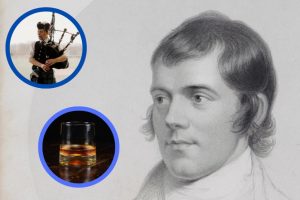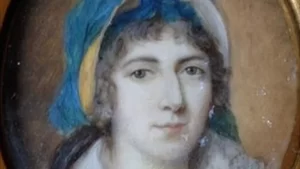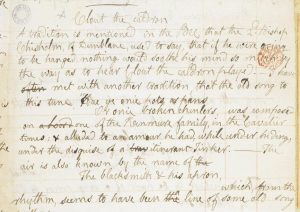Today on My Poetic Side, we celebrate Burns Night with a look at a number of news articles about Robert Burns.
Burns Night – The Do’s and Don’ts
 The annual celebration for the National Poet of Scotland, Robert Burns, has been taking place since 1801, just a few years after the death of the poet in 1796. Some traditions are well known by most such as the Address to a Haggis and the piping in of the guests. However, there are a number of other basic “rules” to remember for a Burns Supper.
The annual celebration for the National Poet of Scotland, Robert Burns, has been taking place since 1801, just a few years after the death of the poet in 1796. Some traditions are well known by most such as the Address to a Haggis and the piping in of the guests. However, there are a number of other basic “rules” to remember for a Burns Supper.
Celebrated on 25th January, the poet’s birthday, Burns Night is an event that takes place not just in Scotland but also all over the world, and it is particularly popular in North America.
One thing that you should certainly never do is not attend a Burns Night unprepared. One of the most important traditions is reciting the poet’s work or reading a speech. This is something that everyone should take part in. interrupting is particularly frowned upon when someone else is in the middle of their recital, with interruptions during the Address to a Haggis a particular no-no.
It is also expected that every guest should bring something, and Burns Night is considered to be a formal occasion, so for those guests who have it, this means the proper highland dress. One final thing, Burns Night is an occasion for Whisky, so if you are wanting a quiet night without alcohol, then this is probably not the right event for you as there are plenty of toasts to be made.
The Work Often Attributed to Burns
 One of the most poignant Scottish Folk Songs, Land O’the Leal is often attributed to Robert Burns. However, the song, which is sung at Ulster-Scots gatherings, was actually written by Lady Caroline Nairne.
One of the most poignant Scottish Folk Songs, Land O’the Leal is often attributed to Robert Burns. However, the song, which is sung at Ulster-Scots gatherings, was actually written by Lady Caroline Nairne.
A contemporary of Burns, she was born in 1766 into an aristocratic family and, whilst she was successful in her writing, kept her true identity a secret. She went under the pseudonym of Mrs Bogan of Bogan when she visited her published and always dressed up as an old lady. She was a very private person and certainly didn’t share the more raucous character traits of Burns. It was simply a wide assumption at the time that the author was Burns because the thought that a woman could have written songs like this was not believed.
Burns Wrote Poetry on Work Stationery
 Pages of the poet’s handwritten poetry that now forms part of the collection at the University of Edinburgh suggest that his passion for poetry was so strong he even indulged during the working day.
Pages of the poet’s handwritten poetry that now forms part of the collection at the University of Edinburgh suggest that his passion for poetry was so strong he even indulged during the working day.
A 220-year-old manuscript written on paper that clearly shows the government excise office’s red watermark, a place where Burns worked from 1788 to 1796, offers a fascinating insight into the life of the poet. This is a unique document that contains poetry and notes and is a part of Notes On Scottish Song, a Burn’s essay. Now a part of what is the largest archival collection at the university, it is studied by students and staff on a regular basis.


You must register to comment. Log in or Register.